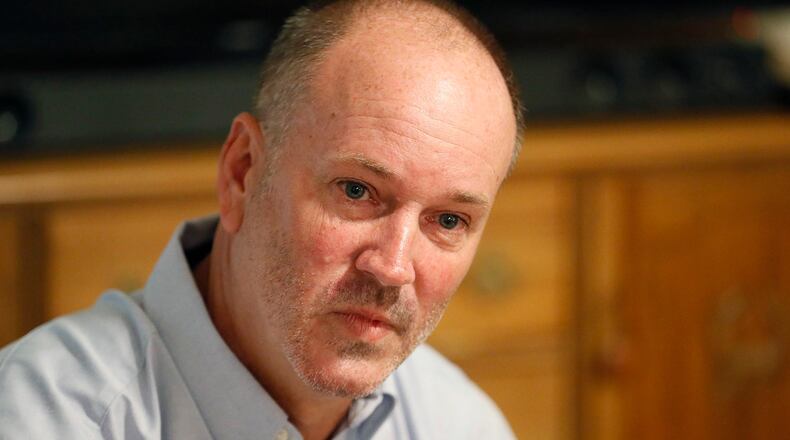A former Clayton County court official who won a landmark case before the U.S. Supreme Court was wrongly fired because he was gay, a recently filed court motion contends, citing pretrial testimony and entries in a judge’s diary.
In June 2020, Gerald Bostock’s case handed the LGBTQ community a major civil rights victory when the high court ruled federal law prohibits discrimination against gay employees in the workplace.
Bostock’s lawyers are now asking a federal judge to find in their client’s favor before the case goes to trial, asserting there is no question Bostock was terminated because he is gay. But lawyers for Clayton County and former Juvenile Court Judge Steven Teske say the case should be dismissed. They insist Bostock was fired not because of his sexual orientation but because he misspent court funds.
Before losing his job, Bostock was the coordinator of Clayton’s Court Appointed Special Advocate program. CASA advocates for children in child abuse cases.
Teske fired Bostock in mid-2013, which was after Bostock joined the Hotlanta Softball League, founded in 1981 by Atlanta’s LGBTQ community. Bostock said discrimination against him began in earnest after he joined the league.
As part of his job, Bostock oversaw a spending account used to recruit volunteers to the advocacy program. The so-called GAL account was funded by a $500 fee families in custody disputes paid to the court.
Teske admitted in pretrial testimony he became concerned when he learned how Bostock was spending funds to recruit volunteers. In his diary, turned over to Bostock’s lawyers, Teske wrote that Bostock was “buying meals for potential sponsors in Midtown Atlanta — the gay district of Atlanta.”
Because he knew Bostock was gay, Teske said in pretrial testimony that he assumed Bostock was not engaging in CASA-related work.
“What makes it suspicious that it was personal is because he is gay and he was in that venue and spending money in the GAL account in that venue, which he could not account for all the spending,” said Teske, who retired last year.
When asked if that was a contributing factor in his decision to fire Bostock, Teske said it was.
Bostock’s lawyers contend this was an admission by Teske that he fired Bostock because he is gay. Teske also wrote in his diary that Bostock used the court funds for “meals with friends (former boyfriends — because he is gay) and to sponsor a softball team in a gay softball league in Atlanta,” the motion said.
After Teske ordered an audit of GAL funds, auditor Leslie Moore said in pretrial testimony she did not consider it an inappropriate use of the money to buy meals for people being recruited to the program. “The audit report did not state that Mr. Bostock engaged in any wrongdoing nor did it suggest he should be disciplined,” the motion said.
Bostock also was involved with Friends of Clayton County CASA, a nonprofit created to generate funds to support the child advocacy program.
Before Bostock was let go, Teske went to see Sabrina Crawford, who chaired the nonprofit, to tell her about the decision fire him. When Teske told Crawford some of the funds were misused to sponsor a team in “a gay softball league,” Crawford said she was aware of it and thought it was a good idea.
In her pretrial deposition, Crawford said when she objected to Teske’s decision to terminate Bostock, the judge slammed his hand down on her desk and said, “But it was at a gay bar.”
In their motion, the county’s lawyers said there is no evidence the county would have kept employing Bostock had he been a straight man who spent court funds on meals at Midtown restaurants and bars and who sponsored a softball team. And Bostock could not identify a single county CASA volunteer who joined from those efforts over a two-year period, the motion said.
“Whether the bar, restaurant or softball team advertises itself as gay-friendly or not is beside the point,” the county said.
The county also hired a gay person to replace Bostock, which “would not make any sense” if Bostock was fired for being gay, the motion said.
The motion also noted that Teske had advocated in favor of LGBTQ youth, retained openly gay employees, believed employment discrimination on the basis of sexual orientation should be prohibited and had previously socialized with Bostock and his partners.
When contacted, Jack Hancock, one of the county’s lawyers, said he does not comment on pending litigation.
It is not often for lawyers in employment discrimination cases to ask a federal judge to grant a victory to a plaintiff before trial, said Ed Buckley, who represents Bostock. “But we believe this is a solid motion and we look forward to the court’s ruling.”
About the Author






